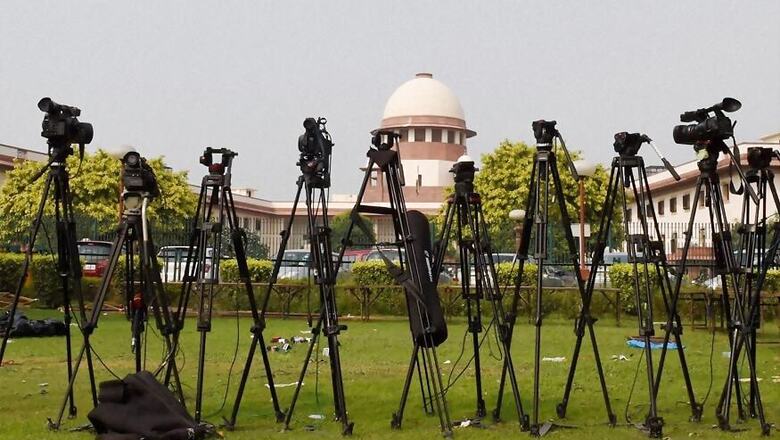
views
New Delhi: Questioned over the delay in appointing judges, the central government on Monday questioned the Supreme Court over its exercise and said the judiciary needs to first put its own house in order.
"Let high courts reform themselves first. Why question the government for 100-odd days in vetting a name when high courts take five years in sending names for appointments?" Attorney General KK Venugopal told the top court.
Venugopal was earlier asked by a bench headed by Justice Sanjay K Kaul to demonstrate through a chart the timeline of judicial appointments in high courts and in the Supreme Court.
This chart, as adduced by the AG, showed that various authorities in the central government took 127 days to clear a name after a report from the Intelligence Bureau (IB).
When the bench expressed concern about the time being taken following the IB's report, Venugopal retorted by asking why blame the authorities to verify and vet these reports when the Supreme Court Collegium itself takes 119 days to decide despite having before it all the reports.
When Venugopal told the judges through the statistics regarding vacancy situations in the high courts and the names currently pending before the government, Justice Joseph asserted that once the names have been reiterated by the Collegium, the government is bound to process those appointments.
This prompted Venugopal to question the Collegium system of appointing judges and said the government also has a duty to see how judges are appointed.
"Then what prevents the government from bringing a new law on this?" the bench asked Venugopal, who replied that the government will like to bring another amendment if that is what is suggested by the court.
Venugopal then pointed out that high courts of Bombay, Chhattisgarh, Jharkhand and Andhra Pradesh have taken more than 60 months to recommend names for appointments to high courts.
"What is this 100-odd days by the government when high courts take more than five years in recommending names? Let high courts reform them first. Issue notices to all 25 high courts and ask them what is the reasons for their delay," Venugopal told the bench.
He added that out of 396 vacancies across the high courts, not a single name has been sent for 199 positions.
At this, Justice Kaul remarked that the bench's only endeavour is to see how the system can work better. The bench acknowledged that almost 40% of chairs in the high courts are presently vacant.
The court then decided to seek responses from the registrar-generals of all high courts regarding their vacancies and the tentative timeline to send the recommendations.
"Inordinate delays in making recommendations in high courts. Situation in some of the high courts is more alarming than the others. Chief Justices must make endeavours to recommend names. There appears to be some hesitation in some high courts to recommend names till the earlier recommendations are cleared. This is not required and the recommendation of names should be a continuing process," said the court order.
The court also urged Venugopal to keep up his efforts to get the recommended names cleared and fixed the matter for hearing after four weeks.
While hearing a matter relating to strikes by lawyers in Odisha, the court had embarked upon the issue of delay in judicial appointments and had sought assistance of the AG.




















Comments
0 comment